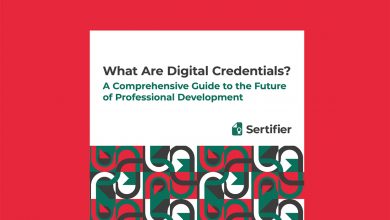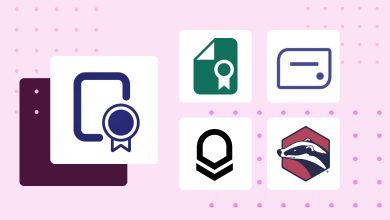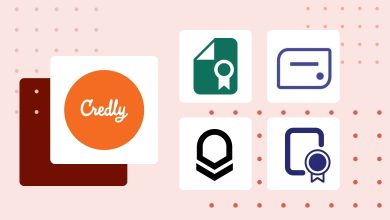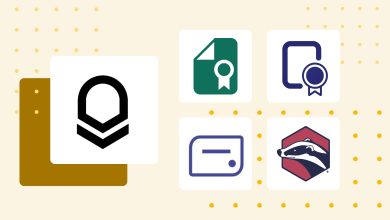Digital Certificate & Badges to Develop Your Skills

The development of internet infrastructures has many advantages, but there are also some disadvantages. For example, for a position; it has made an environment more favorable where you compete not only with potential candidates in your country, but also with any candidate from another country. Therefore, in an environment where there is so much competition, you should be able to acquire skills that make you stand out, regardless of your department and expertise. Besides, continually develop your skills in order to grow.
In this process, where internet infrastructures offer so many opportunities for people to develop themselves in many areas, employers have now become able to receive many benefits from a single human resource.
Digital certificates and badges are the first solutions that come to mind to make you more talented, proving your effort during an online event or as a result of a training you have received. Let’s take a look at what digital certificates and badges are before we delve into the capabilities that they will give you.
What is a Digital Certificate?
A digital certificate is a file or electronic password that proves the authenticity of a device, server, or user using cryptography and public key infrastructure (PKI).
Digital certificate authentication helps organizations ensure that only trusted devices and users can connect to their networks. Another common use of digital certificates is to verify the authenticity of a website to a web browser, also known as a secure socket layer or SSL certificate.
A digital certificate contains identifiable information such as a user’s name, company or department, and a device’s Internet Protocol (IP) address or serial number. Digital certificates contain a copy of a public key from the certificate owner, which must match the corresponding private key to verify it is authentic. A public key certificate is issued by certificate authorities (CAs) who sign certificates to verify the identity of the requesting device or user.

What Are Digital Badges?
A digital badge is a visual representation of a digital identity that is digital proof of skills and achievements. Metadata embedded in digital badges includes information such as awarding organization and completion date. Metadata may also include whether credential renewal is required and achieved through additional training. With skill badges, you can always carry your skills with you easily.
How Can You Develop Your Skills?
Let’s take a look at some skills that you can prove with digital certificates and badges. Learn how to develop your skills by using them.
Technical Skills
In general, technical skills, which can be evaluated under hard skills, are the branches in which digital certificate and badge systems are used the most. They are difficult skills specific to a particular field and often related to engineering, IT, science or technology. This type of skill set enables individuals to operate software or equipment necessary for the job. Common technical skills include:
- Troubleshooting
- prototyping
- CHAD
- STEM (Science, Technology, Engineering, Mathematics) skills
- CRM platforms
- ERP systems
- Network management
- Operating systems
- Drawing
- System management
Computer Skills
While most jobs require at least basic computer skills, many positions require employees to have more advanced stationary computer skills. This type of skill set refers to a person’s ability to use hardware and software to perform a task. Computer skills in demand in today’s workplace include:
- Microsoft Office Suite (Word, Excel, PowerPoint)
- Spreadsheets
- Social media
- QuickBooks
- Database Management
- Write/WPM
- JavaScript
- CSS/HTML
In summary, the digital certificates and digital badges you get as a result of your effort and time will help you develop your existing skills and accompany you to gain new ones.



